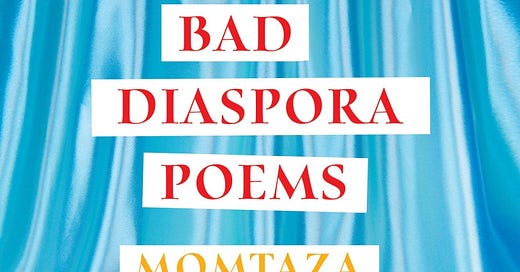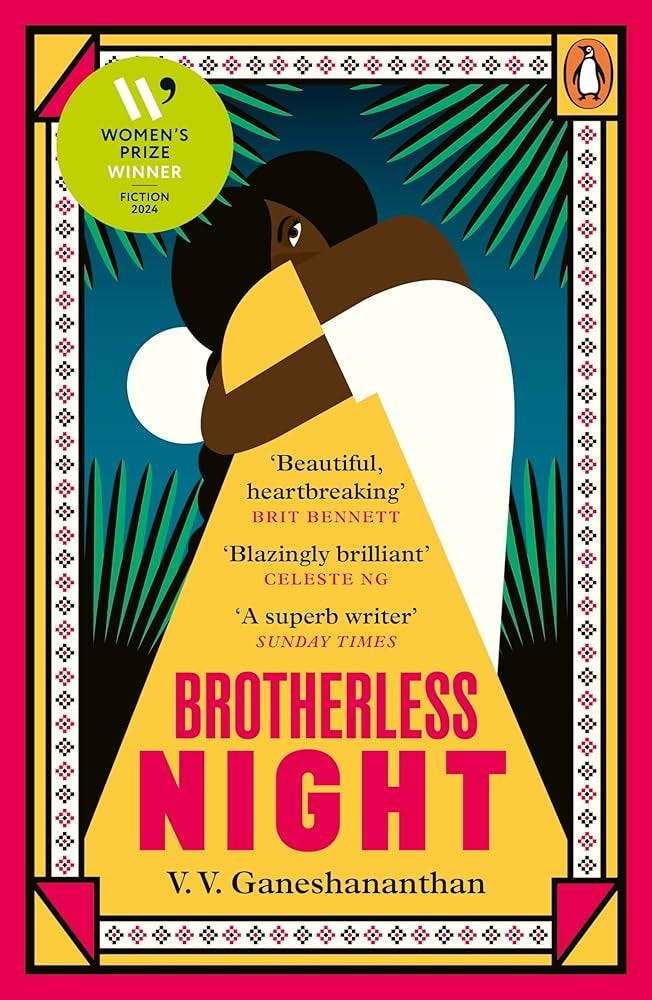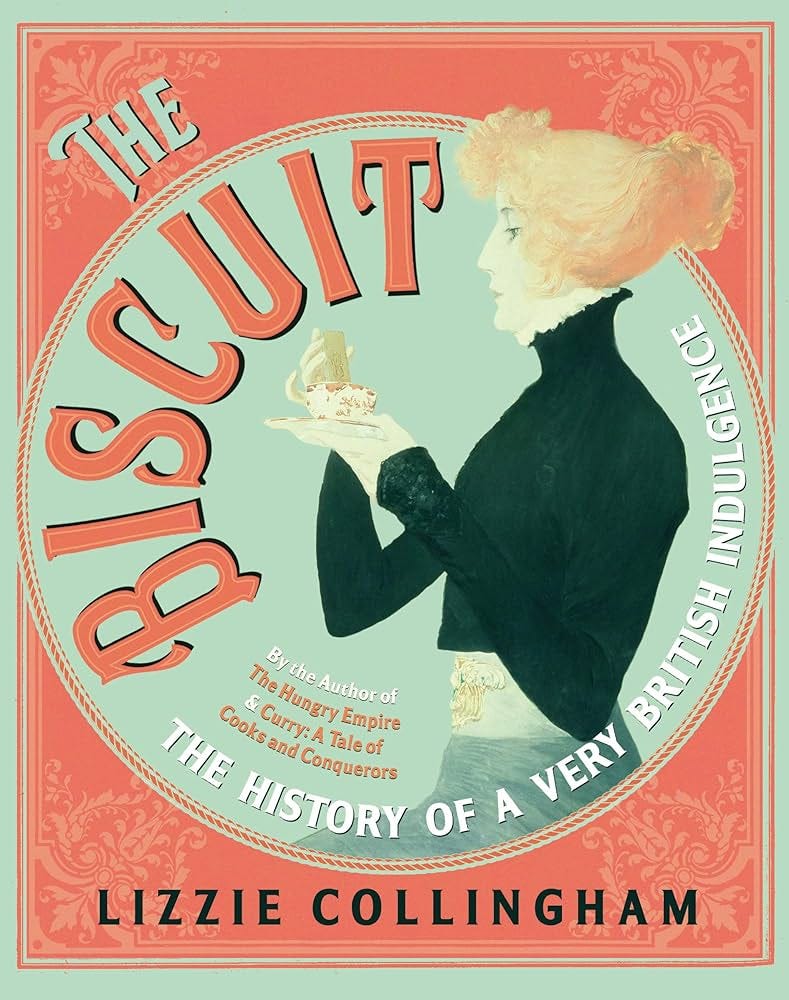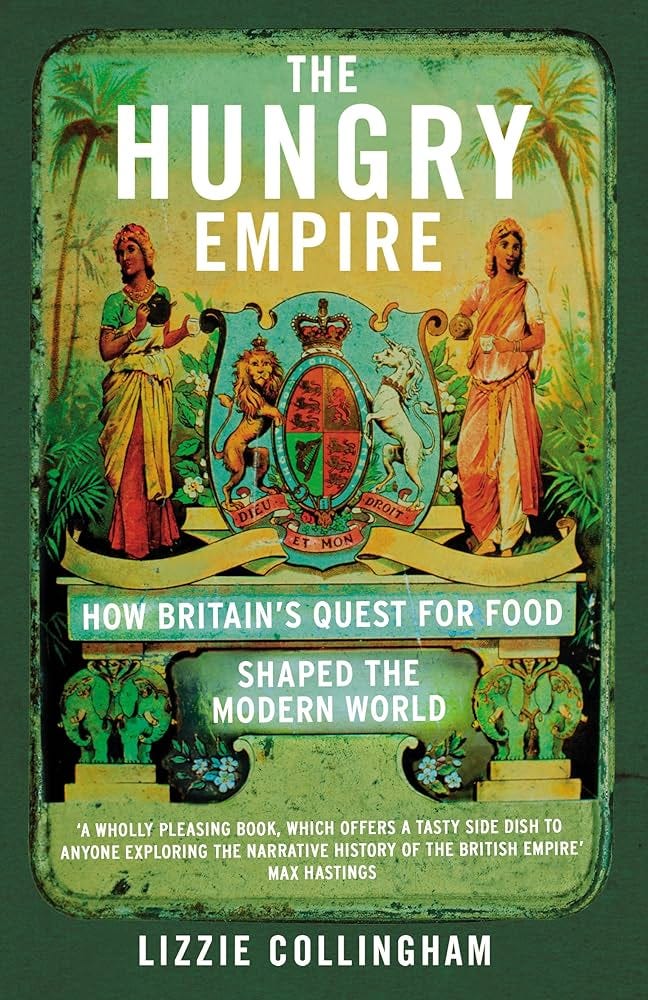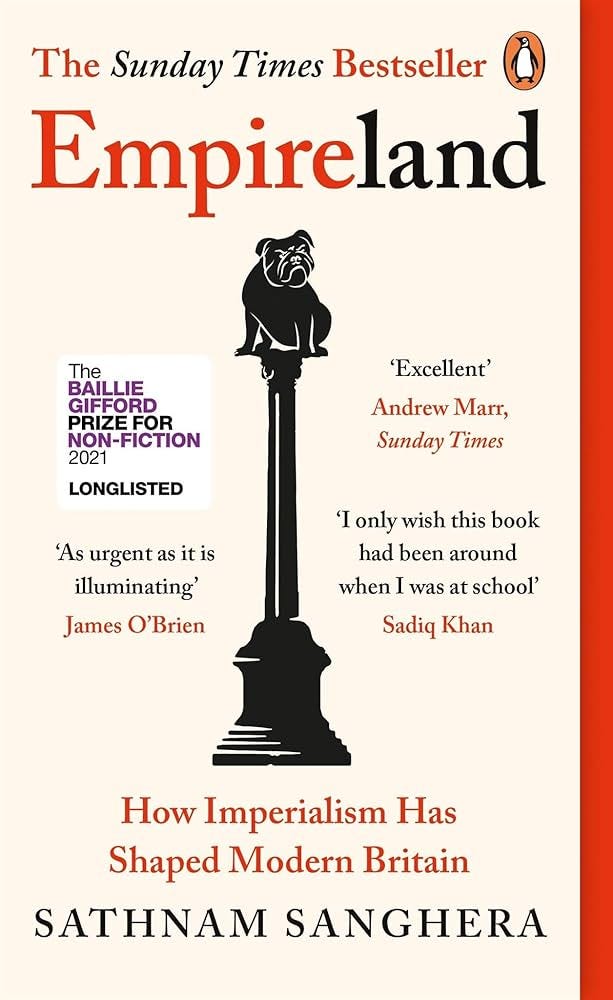I have had a slow start to the year in terms of my reading. There is a lot of life that is happening, and I am learning to lean into that without making myself feel guilty about how I haven’t been a “good” reader.
In the society that we live in, our hobbies go from being things we enjoy to things we must measure. In 2025, I want to make a conscious effort to decouple the productivity-oriented narrative around reading from my own reading habit. I think the urgency comes from the fact that there are so many books I want to read, and so to read only 20 in a given year makes me feel like I won’t do my to-read list justice. However, the fact of the matter is that this list will always go on expanding and I will just have to try my best to make a dent within it, but in a way that feels mindful, joyful and purposeful.
There has been a lot of discussion in the recent months about whether reading is political or not, as well as whether reading should be political or not. All over social media, there was a segment of readers bemoaning the fact that reading and books were both becoming more complicated than they needed to be - after all they provide an escape so how could that possibly be political?
It is important to me that the readers of this blog know that I am firmly in the camp of reading is political, and more to the fact that everything is political. However, let’s focus on reading for a second as that is really what this post is all about. 2024 saw an unbelievable increase in the number of book bans in America. These book bans weren’t random of course - they targeted a very specific set of topics and communities, proving that if there are laws that can decide what should be read and what narratives are allowed to be told, and if there are specific communities and stories that are being censored, then reading is indeed political. In the US, for example, PEN America noted that the most commonly banned books in the 23-24 school year overwhelmingly represented people from Global Majority and marginalised backgrounds: 44% featured people and characters of colour and 39% featured LGBTQ+ people and characters.
Acknowledging this and acting on this is going to be very important in 2025, as it always has been. The return of far-right leaning Republican Party who already in their first few days have made moves such as pulling out of the Paris Agreement and the World Health Organisation, as well as announcing that the United States will hereafter only acknowledge the existence of “two sexes: male and female” is going to put pressure on which and whose stories are permitted, uplifted and celebrated, and which ones are further marginalised, discounted and vilified.
The arts, and books within them play an important role in championing democracy, creating community and fostering hope both within and outside of the US. This has played hugely on my mind as I was reflecting on the way I want to approach my reading this year, instead of giving myself a number to aspire to.
This year, I would like to focus on:
Selecting books that challenge and expand my worldview, particularly those that will take me to places and give me experiences that I would not usually be able to access.
Seeking out books from marginalised voices. Instead of having their stories come from an interlocutor.
Looking for books that inspire me, make me feel uplifted and give me hope.
Ensuring that I am reading from authors from all over the world.
That I am branching out into forms of literature that I do not often read, like poetry.
Whether I am choosing books to read that I already own or can borrow from friends or the library instead of purchasing new ones (even though buying books will forever be the most wonderful dopamine hit).
With this in mind, I wanted to think about the ten books that are must-reads for me this year, and ones that I want to prioritise.
Poetry and Fiction
Bad Diaspora Poems by Momtaza Mehri
I purchased this book in the summer of 2024 and I have been itching to pick it up ever since. As the title of the poetry collection suggests, this is a reflection on what it means to be of a diaspora - the burdens and joys that come with it and the experiences that are had.
This poetry collection is going to take me across time - from the 19th, 20th and 21st centuries - and space - from London to Mogadishu and Naples. It will draw on Momtaza Mehri’s own experiences as well as those from her family and many others.
The title ‘Bad Diaspora Poems’ is so intriguing to me because I feel like it both juxtaposes against and challenges the narrative of the “good immigrant.” I am excited to dig into this and to take my time in digesting each poem. If anyone is a seasoned poetry reader and has any advice, please leave some below in the comments!
As Long as the Lemon Trees Grow by Zoulfah Katouh
‘As Long As the Lemon Trees Grow’ is a young adult historical fiction novel set in Syria during the country’s civil war. It follows eighteen year old Salama Kassab, who is in training as a pharmacy student when war breaks out. The book sees Salama’s journey as she navigates war, loss and fear, as she debates leaving but is unable to leave her people and her country under such dire circumstances, and as she ultimately recognises the events around her as a revolution and joins in the fight for freedom.
While this is targeted at young adults, I can imagine this being a story that transcends age barriers, similar to ‘Safiyyah’s War’ by Hiba Noor Khan, a book I read and loved last year.
Orbital by Samantha Harvey
This novel won the 2024 Booker Prize, and while I have had very mixed experiences with Booker Prize winners in the past, the themes within this book feel like they will be an antidote to the world that we live in today. The Chair of the Booker Prize judges, Edmund de Waal had high praise for ‘Orbital’.
“In an unforgettable year for fiction, a book about a wounded world. Sometimes you encounter a book and cannot work out how this miraculous event has happened. As judges we were determined to find a book that moved us, a book that had capaciousness and resonance, that we are compelled to share. We wanted everything.”
In the book, we follow six astronauts who are circling the Earth. They orbit the Earth sixteen times in one day - seeing sixteen sunrises and sunsets. The vantage point lets them contemplate the relationship between humanity and the Earth, and leaves them feeling very protective of the beautiful blue planet we are lucky to call home.
Brotherless Night by V.V. Ganeshanathan
As my efforts to educate myself about non-Eurocentric events in history continue, I am keen to learn more about the Sri Lankan civil war, which lasted from 1983 to 2009. It is recent enough history that I would have seen it in the headlines as a child, but know very little about.
‘Brotherless Night’ is set in 1981, starting in the years preceding the civil war and is described as a “heartrending portrait of one women’s moral journey.” In it, Sashi is sixteen years old and wants to become a doctor but as the civil war begins, her profession brings her in contact with the conflict and its effects. Beyond this, she has to observe the effects of the war on her home and on her family.
The Warm Hands of Ghosts by Katherine Arden
Katherine Arden is the author of the Winternight trilogy which are a series of brilliantly written historical fantasy novels. In the series, Arden borrows from Russian folklore and Russian history to create a moving and gripping tale. It remains one of my favourite fantasy series because Katherine Arden’s writing is so lush and transportive, and the story so unique.
So, when I heard that she would be coming out with a historical fiction story with elements of magical realism, I was ecstatic. ‘The Warm Hands of Ghosts’ is set during the Great War and written from two perspectives. The first is Laura’s, a Canadian nurse who is trying to find out what happened to her brother, Freddie. He is believed to be dead but there are signs that he may not be. The second perspective is Freddie’s. Riddled with themes of loss, war, grief and family, I expect this novel to be haunting and beautiful.
Non-Fiction
The Biscuit: The History of a Very British Indulgence by Lizzie Collingham
The reason I want to read this book is actually very simple - I love biscuits. In all their forms and varieties (although I obviously have views about which ones are superior).
I am fascinated that one can take a subject that is broad and niche at the same time and dedicate so many hours to its study. I am so intrigued to uncover this history of biscuits which promises to cover so many of the topics that I am interested in from food to history to changes in society and how they affected the production and consumption of biscuits.
Lizzie Collingham is an author I particularly want to read from because she has spent a lot of time engaging with the topic of Empire - her PhD was about the Nabobs of the British Raj (something I would also like to read if I am able to acquire it) and she has written another book which is high on my to-read list called ‘The Hungry Empire: How Britain’s Quest for Food Shaped the Modern World.’
But obviously, priorities, everyone, and so we start our journey among Lizzie Collingham’s written works with the book about biscuits.
Empireland: How Imperialism has Shaped Modern Britain by Sathnam Sanghera
Sathnam Sanghera is a very very cool person. I have listened to countless podcast episodes he has featured in, watched his talks and interviews on YouTube, and attended an event where he was speaking about ‘Empireworld’ and was even able to briefly meet him and say hello. I have also read his autobiographical ‘The Boy with the Top-Knot’ and thoroughly enjoyed it, as well as appreciated his ability to be so candid and generous in sharing his story.
I have done all of this but not finished reading either of his books about the British Empire and this is something I would immediately like to put right this year.
In Empireland, Sanghera addresses how Britain today has been irrevocably shaped by its imperialism and colonialism. It is in response to how topic of the British Empire is not discussed in a well-rounded way within the UK, leading to misunderstandings and ignorance about why Britain is the way it is today. Brimming as it is with much needed truths, I am eager to get stuck in.
Empireworld: How British Imperialism has Shaped the Globe by Sathnam Sanghera
Not content with having fully and totally challenged the prevailing narrative of the British Empire and how it affected Britain, Sanghera decided to plunge further and look at the effect that the Empire has had on the whole world. Famously, the “Empire on which the sun never sets,” Britain has been shaped by and in turn shaped the culture, geopolitics and social fabric of many countries within the world.
While I am excited to read this book, I am also quite scared of what I will encounter. We already see so many conflicts in the world that are a direct consequence of the Empire - be it the way the Empire behaved when it ruled over a country or the actions it took when it was “granting” independence or beyond.
Ultimately, the truth of the matter is that imperialism and colonialism - both British and otherwise - have huge implications for the world that we live in today. It is only through contending with these histories that we can create a way out and forward. I am so grateful to Sathnam Sanghera and others like him who are shining a light on these ignored and sidelined histories and bringing them to the fore.
Orientalism by Edward W. Said
In the past year, I have consumed quite a few of Edward W. Said’s lectures that are available via YouTube. His insight and foresight are compelling and admirable, and his observations about the Western world and the way it has and continues to interact with the East have made me both pay attention to and question everything from the way news is reported, portrayals in films and media to global supply chains. I want to continue to educate myself by reading this seminal work where Said lays out an analysis on the way the West views the East, where this perception comes from and its resultant effects.
Humankind: A Hopeful History by Rutger Bergman
Rutger Bergman is a historian, but more than that he is someone who wants to challenge the status quo by being a truth-teller and by creating avenues for change, which is something I deeply admire and respect.
I have wanted to read this book for a really long time and at the end of last year, given the awful year we had as a global community, I really began to wonder what the point of it all was; why humanity exists if all we do is torment one another and make awful decisions on behalf of each other, especially on that macro scale of business and world leaders. It is then that I decided that I needed to introduce a more balanced narrative that highlights the good that humans have done so I can move the focus away from the bad.
I am hoping that the book fills me with hope and a more positive way of looking at the world.
I will be reporting back throughout the year as I make my way through these books and hopefully by the end of 2025, we will be able to revisit this post and do a full wrap-up.
I hope your reading gives you joy, hope and indulges your curiosity this year.
Until next time,
Ishani


